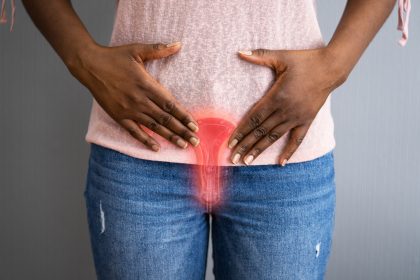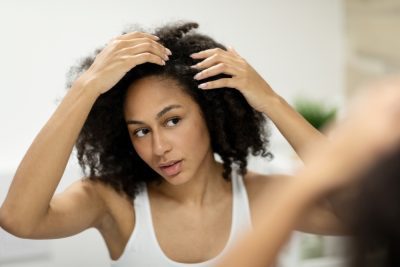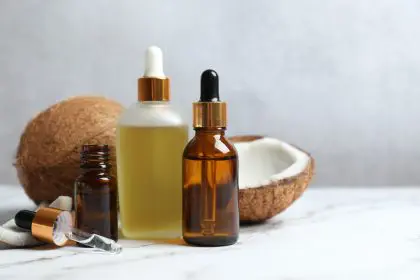Unlocking the Secrets of Comprehensive Hair Health
In the intricate landscape of personal grooming, hair care represents a complex intersection of biological science, environmental factors, and individual wellness. Understanding the nuanced mechanisms of hair health requires a holistic approach that transcends traditional beauty paradigms.
The Biological Complexity of Hair Wellness
Hair represents a sophisticated biological system that reflects overall physiological health. Each strand emerges as a complex protein structure, intricately connected to metabolic processes, nutritional intake, and environmental interactions. The molecular composition of hair follicles involves sophisticated biochemical mechanisms that respond dynamically to internal and external stimuli.
Nutritional Foundations of Hair Vitality
Optimal hair health begins at the cellular level, deeply rooted in nutritional foundations. Essential nutrients play critical roles in hair follicle maintenance:
Proteins provide structural building blocks Minerals support cellular regeneration Vitamins regulate metabolic processes Fatty acids maintain moisture and structural integrity
Environmental Interaction Dynamics
Hair represents a sensitive biological interface constantly negotiating environmental challenges. Factors such as humidity, temperature, pollution, and UV radiation create complex interaction zones that significantly impact hair structure and health.
Microscopic hair cuticles respond to environmental conditions through intricate molecular adaptations. These adaptive mechanisms protect the hair’s internal structure while maintaining flexibility and resilience.
Advanced Moisturization Strategies
Effective hair hydration involves a deeper approach than just surface-level treatments. These advanced strategies focus on restoring and maintaining healthy moisture levels within the hair, supporting long-term hair health and resilience.
- Penetrating Hair Shaft Molecular Structures
To achieve lasting hydration, moisturizers should penetrate the hair shaft at a molecular level. Ingredients like humectants attract water into the hair, allowing deep hydration to reach the cortex, where moisture is most needed for strength and elasticity. - Restoring Lipid Barriers
The natural oils (lipids) that coat the hair shaft are essential for retaining moisture and protecting the hair from external damage. Restoring these lipid barriers, especially with nourishing oils and butters, helps lock in moisture and keeps hair smooth and hydrated. - Balancing Moisture-Protein Ratios
Healthy hair requires a balance between moisture and protein. Moisture keeps hair flexible and hydrated, while protein strengthens the hair shaft. A balanced ratio ensures hair is not overly dry (lacking moisture) or brittle (too much protein), which can lead to breakage. - Protecting Against Environmental Degradation
Environmental factors, such as UV rays, pollution, and extreme temperatures, can strip moisture from the hair and cause damage. Advanced moisturization strategies involve using protective products like leave-in conditioners or UV shields to guard against these environmental stressors and preserve hydration.
Botanical Intervention Technologies
Natural botanical extracts are increasingly being used as advanced intervention technologies in hair care, harnessing the powerful molecular properties of plants to nourish and protect hair. Ingredients like argan oil, rich in essential fatty acids and antioxidants, offer a variety of benefits to support hair health.
- Antioxidant Protection Mechanisms
Many botanical extracts, such as argan oil, are rich in antioxidants that protect hair from oxidative stress caused by environmental factors like UV rays and pollution. These antioxidants neutralize free radicals, helping to prevent premature aging, discoloration, and damage to hair follicles. - Anti-Inflammatory Cellular Responses
Certain plant-based oils and extracts have anti-inflammatory properties that can soothe the scalp and reduce irritation or inflammation. This is particularly beneficial for individuals with sensitive scalps or conditions like dandruff, as it promotes a healthier, calmer scalp environment for hair growth. - Deep Penetrative Hydration Capabilities
Natural botanicals can penetrate the hair shaft more deeply than conventional synthetic moisturizers. Ingredients such as aloe vera and jojoba oil provide lasting hydration by attracting and retaining moisture in the hair, leaving it feeling soft, supple, and hydrated from root to tip. - Structural Protein Reinforcement
Many botanical extracts, including proteins derived from plants like soy and wheat, help reinforce hair’s natural structure. These plant-based proteins bind to the hair cuticle, helping to strengthen the hair and reduce breakage. This reinforcement enhances hair elasticity, reducing the risk of damage and promoting healthier, more resilient hair.
Scalp Ecosystem Management
The scalp is a dynamic and delicate environment that requires careful attention to maintain optimal conditions for hair growth. Effective scalp management focuses on supporting its microbiological ecosystem, which plays a critical role in overall hair health.
- Microbiome Balance
The scalp, like the skin, hosts a diverse range of microorganisms, including bacteria and fungi, which help maintain its health. A balanced scalp microbiome supports hair growth, prevents infections, and reduces dandruff or scalp irritation. Using products that promote microbial harmony can help protect against scalp conditions like seborrheic dermatitis and fungal overgrowth. - Sebum Regulation
Sebum, the natural oil produced by sebaceous glands, plays a key role in protecting and moisturizing the scalp. However, excessive sebum can lead to clogged pores and scalp buildup, while insufficient sebum can result in dryness and flaking. Effective scalp management involves products that regulate sebum production, promoting a balanced, healthy scalp environment. - Follicular Health Maintenance
The condition of the hair follicles directly impacts hair growth. Maintaining healthy follicles through proper scalp care ensures they remain unclogged, nourished, and supported. Nutrients, gentle exfoliation, and stimulating massage techniques can promote optimal follicular health, encouraging stronger hair growth. - Inflammation Mitigation Strategies
Inflammation of the scalp can lead to a variety of hair issues, including thinning and shedding. Anti-inflammatory treatments, such as soothing botanical ingredients or topical corticosteroids, help reduce scalp irritation and prevent chronic inflammation, which can disrupt the hair growth cycle. Incorporating anti-inflammatory products into the scalp care routine supports long-term hair health and follicular vitality.
Technological Advancements in Hair Care
Emerging research continues expanding our understanding of hair wellness through:
Genomic analysis of hair growth patterns Advanced molecular imaging technologies Personalized nutritional intervention strategies Computational modeling of hair structural dynamics
Psychological Dimensions of Hair Health
Hair wellness extends beyond physical characteristics, encompassing significant psychological dimensions. Hair represents a critical component of personal identity, influencing:
Self-perception Social interactions Emotional well-being Cultural expression
Personalized Care Approach
A truly effective hair care regimen must be tailored to each individual, considering various personal factors that influence hair health. A personalized approach addresses unique needs, promoting optimal results and long-term hair vitality.
- Genetic Predispositions
Hair type, texture, thickness, and the propensity for hair loss or certain scalp conditions can all be influenced by genetics. Understanding genetic predispositions allows for a customized treatment plan that targets specific concerns such as thinning, pattern baldness, or scalp sensitivity. - Metabolic Characteristics
The body’s metabolic processes play a crucial role in hair health. Factors such as hormone levels, nutrient absorption, and circulation can directly impact hair growth and condition. Tailoring care based on individual metabolic needs can help address issues like hair thinning, sluggish growth, or dryness. - Environmental Exposures
Each person is exposed to different environmental factors, such as air pollution, climate conditions, or hard water, that can affect hair health. Personalized hair care strategies take these exposures into account, incorporating protective measures or treatments to counteract the impact of environmental stressors on the hair. - Lifestyle Factors
Diet, exercise, stress levels, and sleep patterns all influence hair health. A personalized approach incorporates these lifestyle factors, recommending dietary changes, stress management techniques, and sleep improvements to optimize hair growth, texture, and overall health.
Holistic Wellness Integration for Hair Health
Comprehensive hair care demands a multidimensional approach integrating:
Nutritional interventions Technological innovations Personalized care strategies Psychological support mechanisms
Emerging Research Frontiers for Hair Health
Scientific exploration continues unveiling sophisticated insights into hair wellness. Molecular-level studies investigate:
Genetic hair growth regulation Advanced botanical intervention technologies Personalized nutritional strategies Cellular regeneration mechanisms
Conclusion: A Comprehensive Wellness Paradigm
Hair health represents a sophisticated biological narrative that extends far beyond surface-level aesthetics. By developing comprehensive understanding, implementing strategic interventions, and maintaining holistic awareness, individuals can unlock their hair’s inherent potential.
The future of hair care lies in integrated, scientifically informed approaches that balance technological innovation, personalized strategies, and comprehensive wellness principles. Continuous research, technological advancement, and holistic understanding will be critical in developing more effective hair management methodologies.















